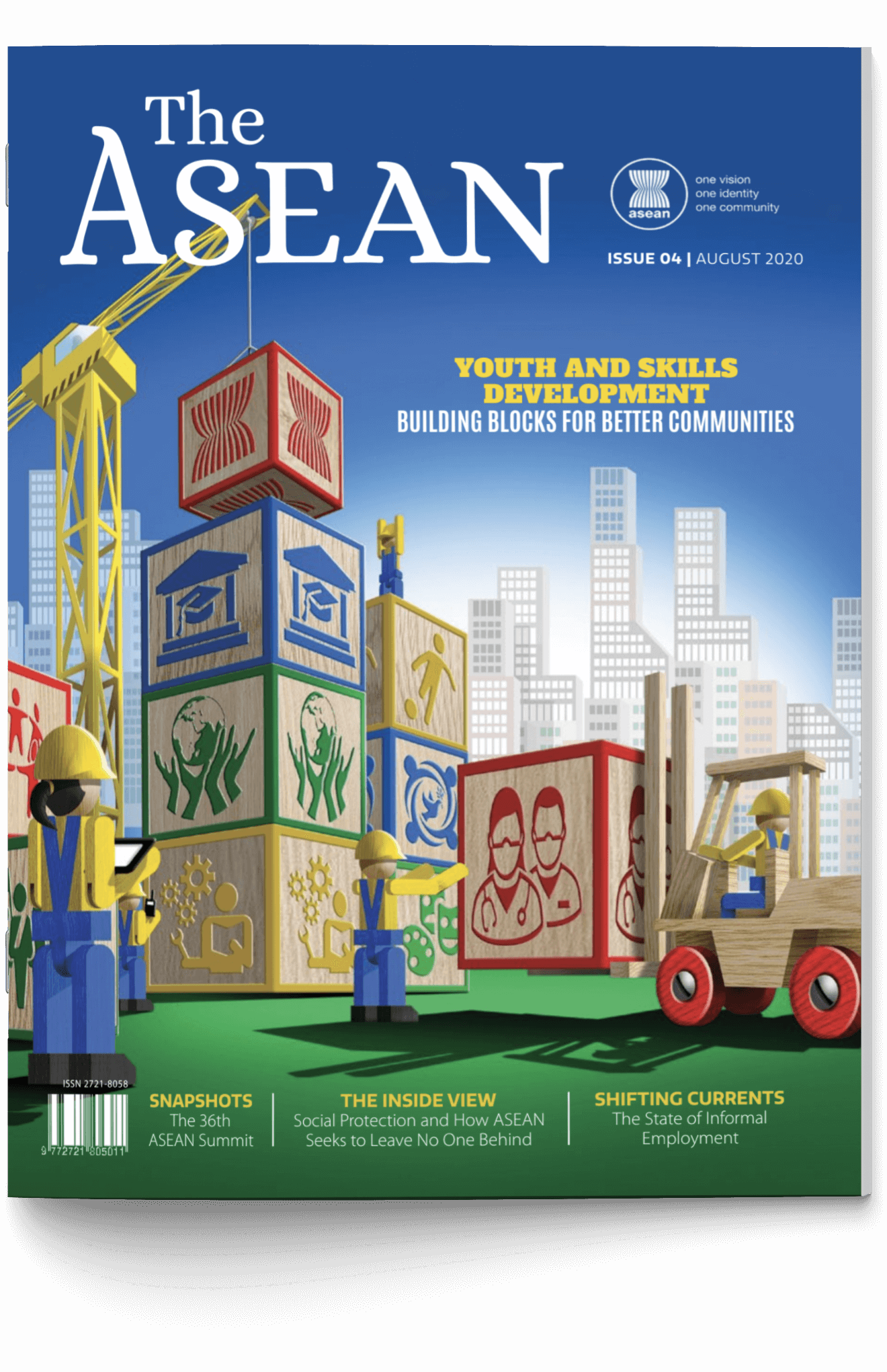

Subscribe to our newsletter:

Issue 04
August 2020
Youth and Skills Development
Building Blocks for Better Communities
Download:
Inside this Edition
Themes

6 Aug 2020
Education, Labour and Future of Work
Skilled Youth Today, Stronger ASEAN Tomorrow
There was a time when job ads were a lot shorter. Those ads would not take up more than three or four lines in a newspaper, and typically sought candidates with “a pleasing personality.”

6 Aug 2020
ASEAN Identity and Community Building, Youth
What is the ASEAN Youth Development Index?
The ASEAN Youth Development Index (YDI) is a tool designed to keep track of the level of development and wellbeing of the region’s youth in the following domains: education; health and well-being; employment and opportunity; participation and engagement; and ASEAN awareness, values, and identity. Each domain is composed of several indicators or measures. The data for these indicators were obtained from international sources, such as the World Health Organization, Gallup World Poll, and UNESCO. T

6 Aug 2020
Labour and Future of Work, Youth
Higher Education for a Competitive ASEAN Workforce
Higher education plays a vital role in developing a highly-skilled workforce.

6 Aug 2020
Education, Labour and Future of Work, Youth
Building Globally Competitive ASEAN Universities and Students through the SHARE Scholarship
Breathing life into ASEAN’s intersecting commitments on higher education and the youth is an overwhelming task, but thankfully, ASEAN has found a partner in the European Union.
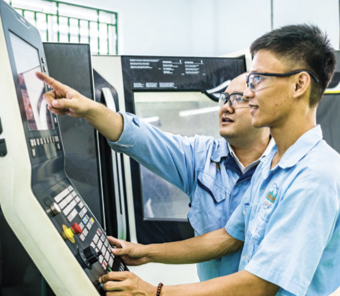
6 Aug 2020
Education, Labour and Future of Work
Preparing ASEAN’s Youth for the Labour Market
Transitioning from school to work is an important stage in a young person’s life. Matching what young people learn at school with the skills employers need helps youth to transition more quickly and into a better job. Increasing the share of training taking place in companies can help to strengthen the matching of skills, facilitate the integration of youth into the labour market, and prepare ASEAN’s economy for the Fourth Industrial Revolution.
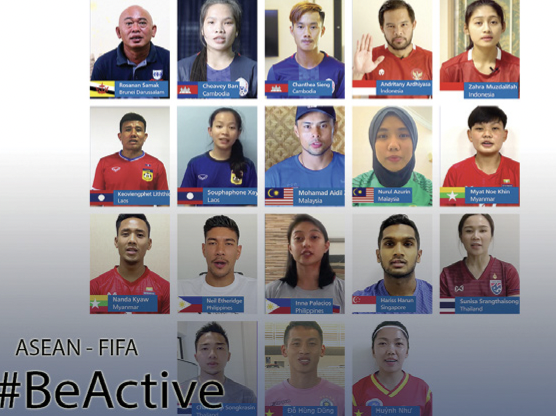
6 Aug 2020
Health and COVID-19
Sports for a Stronger ASEAN: Footballers urge fans to stay healthy and active
The COVID-19 pandemic has put sporting events on hold. Stadiums and football fields are empty, but for ASEAN, promoting sports development and healthy lifestyles will not stop.

27 Aug 2020
Sports
Reimagining the Power of Sports in ASEAN
When we think of sports, we immediately think of our favorite athletes and their physical prowess, and the excitement we feel as we watch them play and compete. We do not often think about sports in the same breath as peace- and community-building, or see it as a development tool.
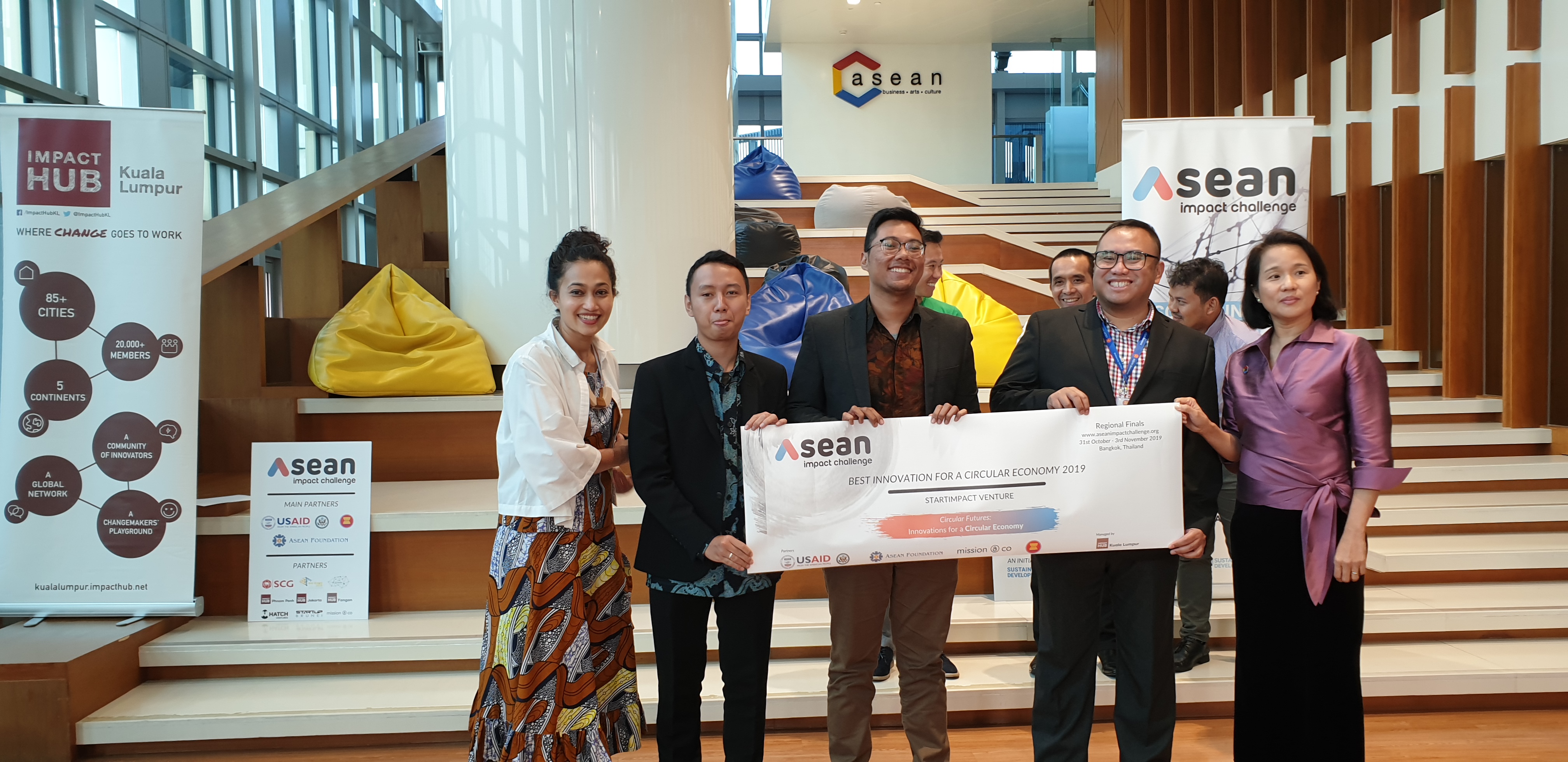
27 Aug 2020
Education, Labour and Future of Work, Youth
ASEAN Impact Challenge: Young Social Entrepreneurs Imagine a Sustainable Economic Future for ASEAN
Imagine a world where economies put a premium on sustainability through the elimination of waste and the efficient use of resources. Young entrepreneurs in ASEAN are not only imagining such a world, but are also coming up with innovative ideas to take advantage of the new principle of “circular economy.”

27 Aug 2020
Labour and Future of Work, Youth
Technology, a Boon for the ASEAN Workforce?
Millions of jobs will be lost across industries in ASEAN as we hurtle towards the Fourth Industrial Revolution (4IR). Numerous studies have predicted this, but is it an inevitable disaster? Will it derail the development trajectory of less developed economies?

27 Aug 2020
Culture, Education
Literacy for All in ASEAN
As we move into a new technological age with new challenges, the ability to read, write, and understand information has become a crucial component for survival. In addition, our rapidly changing world demands that we embrace new forms of literacies, such as digital, financial, and cultural literacies.

27 Aug 2020
Health, Health and COVID-19
ASEAN-China Cooperation: Alleviating Poverty Caused by the COVID-19 Pandemic
ASEAN’s impressive progress in reducing poverty is currently under threat of being reversed due to COVID-19.

27 Aug 2020
Culture, Health and COVID-19
Tangible Impact of COVID-19 on Intangible Cultural Heritage
Just a few short months ago, we went about our lives celebrating festivals, partaking in traditional feasts, and watching cultural performances. But all these activities—classified as intangible cultural heritage or ICH—came to a grinding halt with the COVID-19 pandemic and the measures imposed to curb the spread of the virus.

27 Aug 2020
Culture, Sports
A Look Back at Southeast Asia’s Traditional Games
Countries in Southeast Asia have a rich tradition of local games, some dating back to as early as the 8th century. These traditional games are shaped by local culture and the environment, incorporating cultural knowledge, values, and skills. Played by children and adults, these games have served as tools for community building and cognitive development.
Interviews
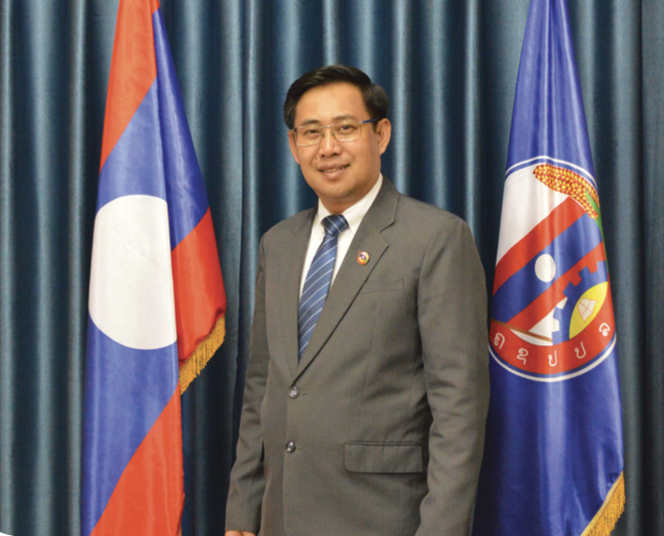
6 Aug 2020
Labour and Future of Work, Youth
Alounxai Sounnalath

6 Aug 2020
Health and COVID-19, Sports, Youth
Fatma Samoura
Harnessing the power of football for positive change. On the Fédération Internationale de Football Association (FIFA) partnership with ASEAN, staying healthy and active during the pandemic, and elevating the sport in the region

27 Aug 2020
Sports, Youth
Joseph Isaac Schooling
Joseph Isaac Schooling won the first Olympic gold medal for his home country Singapore in the Rio 2016 Summer Olympics. He beat legendary American swimmer Michael Phelps in the 100m butterfly, and broke the Olympic record that Phelps previously held. Schooling started swimming at an early age and has won in many other international competitions. He is a philanthropist and public figure who has promoted swimming in Singapore and the rest of the region. The 26-year-old swimmer talks to The ASEAN a
Conversations

14 Aug 2020
Youth
Louise Mabulo
At just 21 years old, Louise Mabulo is an awardwinning chef, farmer, and public speaker. Her culinary career started after joining the Philippine version of the popular tv show, “Junior Master Chef.”

27 Aug 2020
Education, Youth
Joseph Phan Van Quyen
For 25-year-old entrepreneur Joseph Phan Van Quyen, being young means having endless opportunities to contribute to communities. He established Jos Creative (www.joscreative.com) to channel his passion for multimedia art. His interest in human-centered design that creates solutions and social impacts prompted him to set up Ethnicity in 2018, a digital conservation project that preserves the patterns on the ethnic minorities’ textiles. With this, he aims to promote mutual understanding among rura
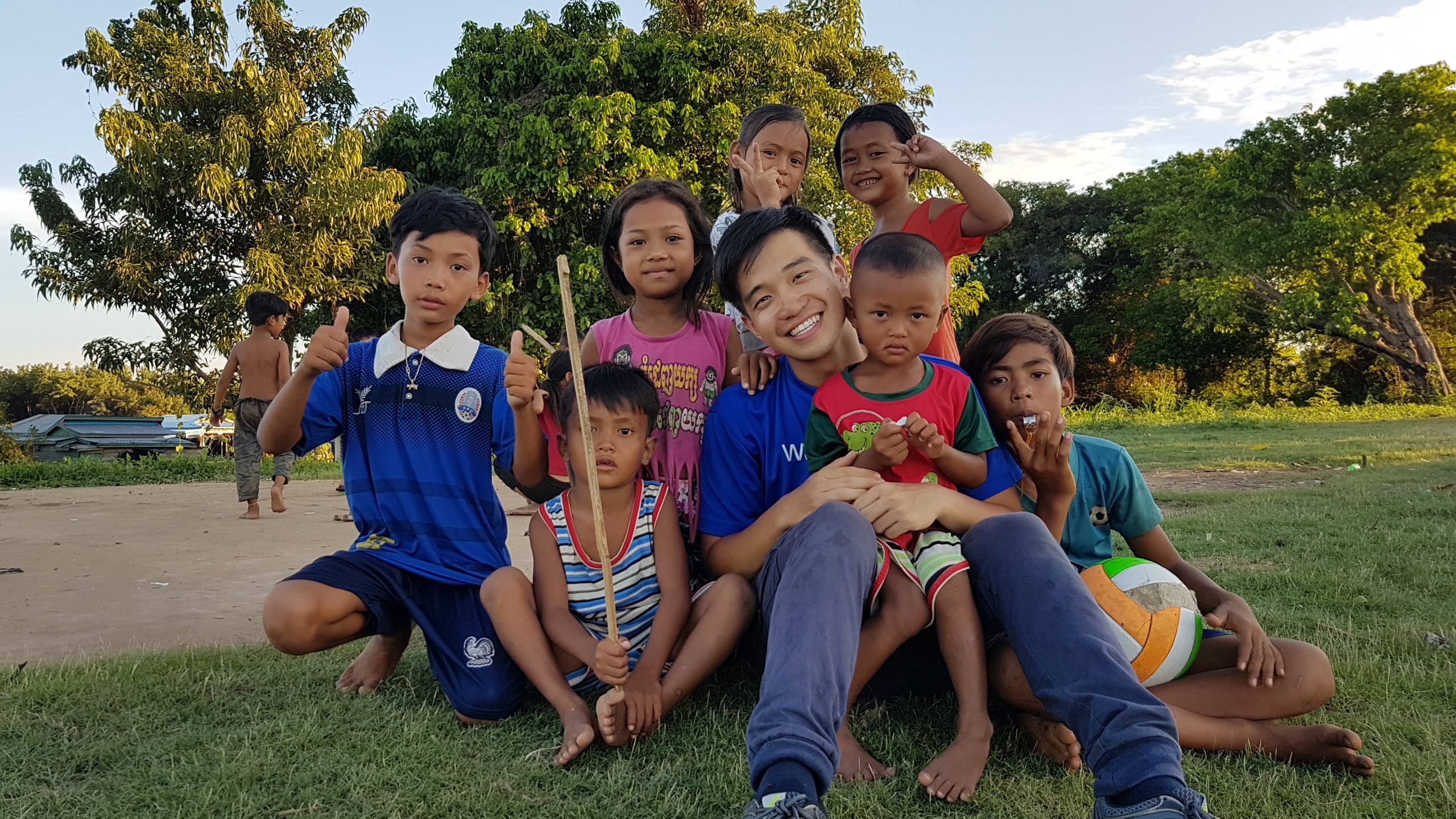
27 Aug 2020
Environment, Youth
Lim Chong Tee
Lim Chong Tee, 29, is the co-founder and Chief Marketing Officer of WateROAM, a Singapore-based social enterprise that develops portable water filtration solutions which provide quick access to clean water for people in rural communities and disaster-relief sites. Lim met with the other two co-founders, David Pong and Vincent Loka, at a water initiative programme at the National University of Singapore. Sharing the same passion, the trio founded WateROAM in 2014. Some of their projects include h

27 Aug 2020
Youth
Aung Myint Myat Kyaw
Aung Myint Myat Kyaw is a fourth-year university student with a passion for all things digital. In 2019, he was selected by the ASEAN Foundation to receive training on computer science education under its ASEAN Digital Innovation Programme (ADIP), a partnership programme with Microsoft which aims to create a generation of future-ready youth in the region. This training allowed him to conduct similar training courses for scores of Myanmar youth who lack digital skills.


